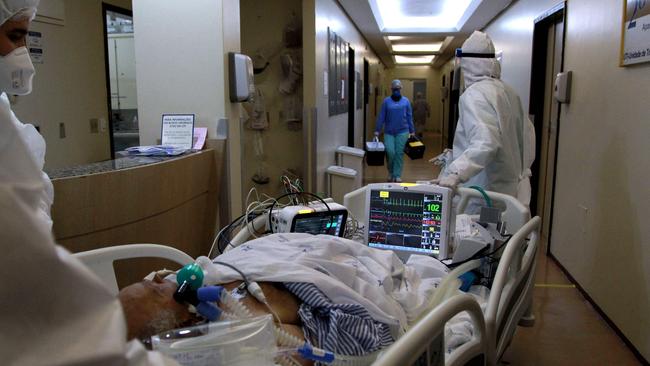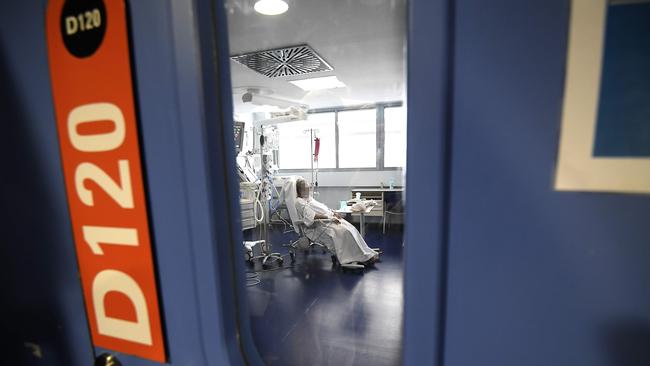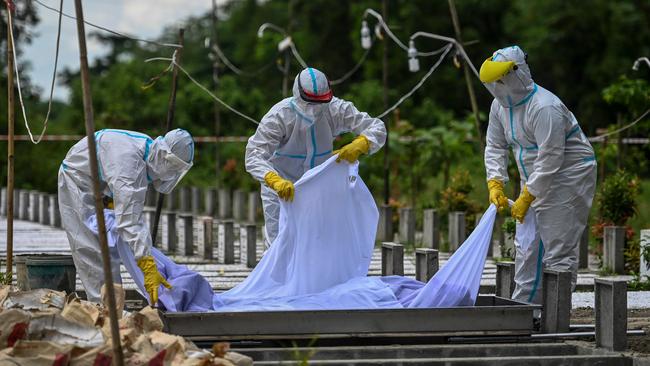Coronavirus could age the brain by 10 years or cause IQ to fall
The ‘brain fog’ reported by many people after recovering from COVID-19 may be a symptom of more serious cognitive deficits.

Coronavirus survivors may be at risk of lasting cognitive damage, according to a study that found that in the worst cases the infection can cause mental decline equivalent to an 8.5-point fall in IQ or the brain ageing 10 years.
The “brain fog” reported by many people weeks and months after their recovering from the virus may be a symptom of more serious cognitive deficits, scientists have said.
Research involving 84,285 people who had recovered from confirmed or suspected COVID-19 found that damage to the brain had happened to varying extents, depending upon the severity of the infection. However, more work is needed to identify how long this lasts.
The worst-affected patients, those who were treated in intensive care or needed ventilation, suffered changes equivalent to an 8.5-point drop in IQ or the brain ageing 10 years.
Adam Hampshire, of the faculty of medicine, department of brain sciences at Imperial College London, who was lead author of the study, said the “shocking” results applied to more than only those patients who had been in hospital. Those who had had no breathing difficulties but had tested positive also exhibited cognitive decline. People who had recovered at home had an average deficit equivalent to ageing five years or dropping four IQ points.

“This is a large enough difference that as an individual you would notice an impact on the ability to cope with your normal job and everyday life,” Dr Hampshire said.
“The results align with the ‘brain fog’ reported by many people who, even months after recovery, say they are unable to concentrate on work or focus how they did before.”
The team, from Imperial College, the University of Cambridge, the University of Chicago and King’s College London, also found that compared to people who had not had the virus survivors scored poorly on tests for logic and the meaning of words, spatial orientation, maintaining attention and processing their emotions.
The results should be a “clarion call” for further work to be carried out on how the coronavirus affects the brain, their paper said.
“Individuals who recovered from suspected or confirmed COVID-19 perform worse on cognitive tests in multiple domains than would be expected given their detailed age and demographic profiles,” it said.
“This deficit scales with symptom severity and is evident among those without hospital treatment.”
Participants in the study were asked to do nine tasks to assess their cognitive function, and the results were analysed by a team of experts. To avoid bias, the subjects were not told that the study was assessing the effects of the coronavirus until after they had finished.
Of the 84,285 people who took part, 60 said they had been put on a ventilator and 147 were cared for in hospital without a ventilator.

Another 176 had needed medical care at home for breathing difficulties, 3466 had had breathing difficulties but received no medical aid, and 9201 reported having been ill but without showing breathing symptoms.
The authors did note that time spent in intensive care or on a ventilator for any disease would have an impact on cognitive function.
Until now there has been little clinical data gathered on the cognitive effects of the coronavirus. Anecdotally, however, survivors and their doctors have reported symptoms of “long COVID”, the most common being unshakeable fatigue and weariness.
The initial study was done in May and more work is being carried out to assess the cognitive effects on the same subjects several months after recovery. To get a deeper understanding of the damage to the brain, the team will cross reference results from the behavioural study with detailed imaging.

The data was taken from the Great British Intelligence Test and participants are being encouraged to join the ongoing research.
People who have “long COVID” symptoms are now being offered specialist help at clinics across England because of concerns that the virus will have lasting effects on health.
GPs, respiratory consultants, physiotherapists and other specialists will help to assess, diagnose and treat thousands of sufferers who have reported symptoms ranging from breathlessness, chronic fatigue, “brain fog”, anxiety and stress.
There is increasing medical evidence and patient testimony that a significant minority of coronavirus survivors cannot shake off the effects months after falling ill.
Some estimates suggest that 10 per cent of coronavirus patients may still be experiencing symptoms more than three weeks after infection, and perhaps 60,000 people could be suffering from long Covid symptoms after more than three months.
The Times







To join the conversation, please log in. Don't have an account? Register
Join the conversation, you are commenting as Logout